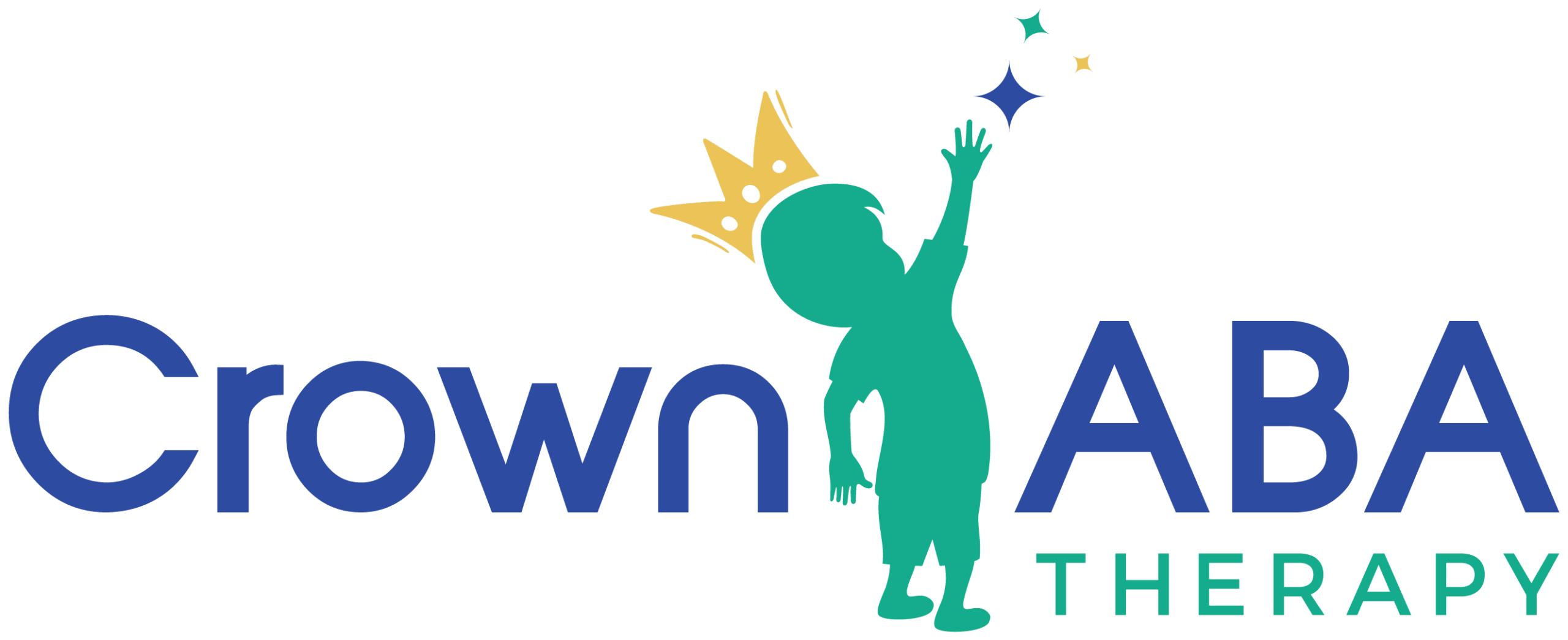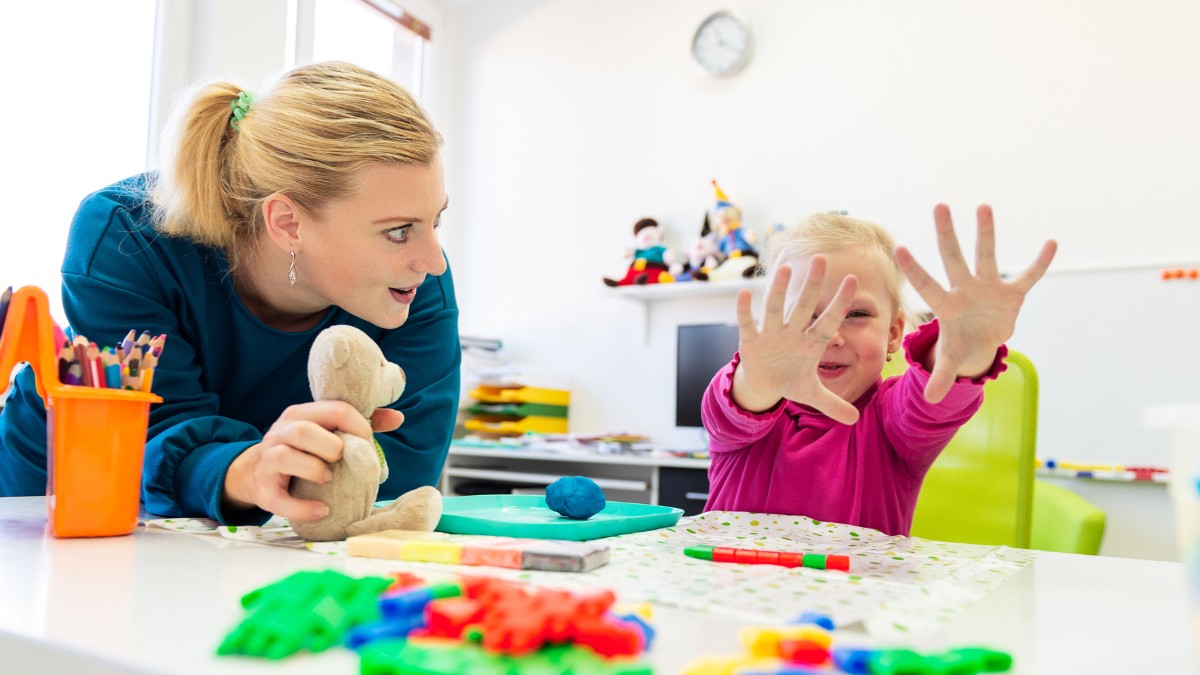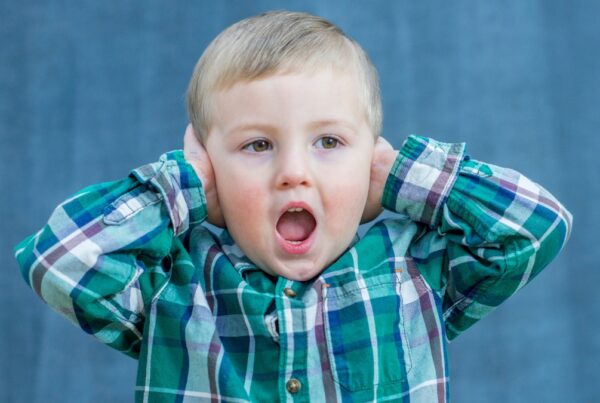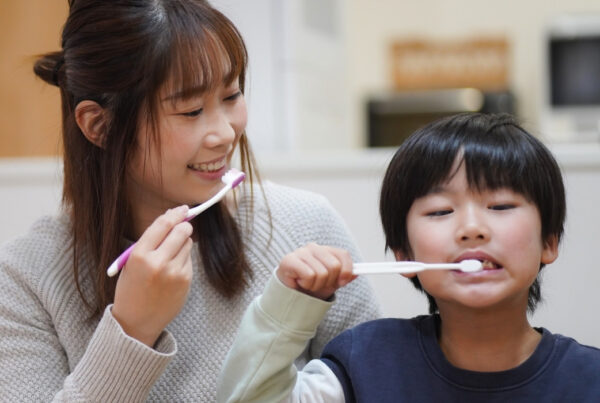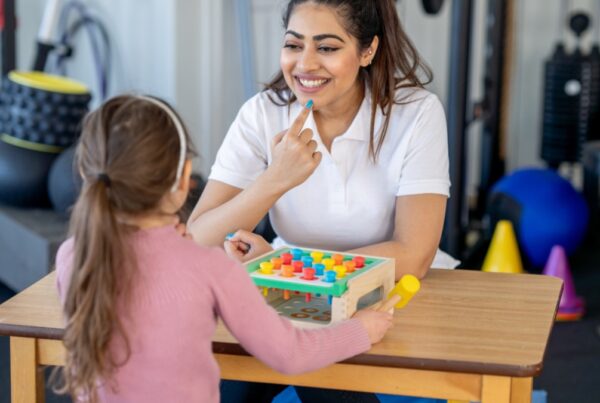Key Points:
- Kindergarten autism activities play a crucial role in helping children with autism develop social, communication, and motor skills while fostering engagement and learning.
- Activities tailored to children on the autism spectrum should be interactive, sensory-rich, and structured, providing a safe space for learning.
- ABA therapy is an excellent resource for personalized guidance, helping children with autism improve their social and behavioral skills, and can be integrated with kindergarten autism activities.
Engaging young children with autism in kindergarten can be both rewarding and challenging. Kindergarten is a pivotal stage in a child’s development, and it’s essential to create environments that support not only academic learning but also social, emotional, and behavioral growth. One of the key steps in achieving this is setting up an autism classroom that fosters a sense of safety, structure, and individualized support.
Kindergarten autism activities are designed to engage children with autism by providing structured experiences that promote learning in a way that aligns with their unique needs, such as sensory sensitivities, which are prevalent in up to 93% of diagnosed individuals.
In this article, we’ll explore the importance of kindergarten autism activities and the types of activities that are most beneficial, as well as provide practical ideas to enhance engagement.
What are Kindergarten Autism Activities?
Kindergarten autism activities are specifically designed exercises and games that help children with autism engage in learning while addressing key developmental challenges. These activities can help children with autism develop critical skills such as social interaction, communication, sensory processing, and fine and gross motor skills.
The goal of these activities is to create an engaging and supportive environment that meets the unique needs of each child. Whether it’s fostering language development through games or helping them understand basic social rules, kindergarten autism activities are a tool for encouraging participation and boosting confidence.
These activities often combine elements such as:
- Repetition to reinforce learning.
- Visual aids to improve understanding.
- Sensory activities that are calming and engaging.
- Structured routines to provide consistency.
How Can Activities Help Children with Autism
Children with autism often face challenges in communication, social interactions, and sensory processing. Tailored activities can address these challenges, helping to bridge gaps in these areas and support their overall development. Here’s how engaging in activities can benefit children with autism:
1. Improving Communication Skills
Many children with autism face difficulties in verbal and non-verbal communication. Using engaging activities, such as interactive games or songs, can help children practice speaking, listening, and understanding the nuances of conversation, such as turn-taking or responding to questions.
2. Promoting Social Skills
Social interaction can be particularly challenging for children on the spectrum. Kindergarten activities that involve group work, collaborative play, or role-playing can help these children practice appropriate social behaviors, like making eye contact, using polite phrases, or understanding social cues. These social scenarios, especially when presented in a structured way, build confidence and competence in navigating peer interactions.
3. Enhancing Motor Skills
Fine and gross motor skills can also be areas of difficulty for children with autism. Activities like building with blocks, coloring, or playing with sensory toys can improve hand-eye coordination and muscle strength, while outdoor games help with balance, coordination, and spatial awareness.
 Fun Toys for Kindergarten Autism Activities
Fun Toys for Kindergarten Autism Activities
When selecting toys for kindergarten-aged children with autism, it’s important to focus on items that help with sensory processing, communication, and social skills. These toys can be fun and educational while providing a sense of comfort and engagement.
Here are some useful toys for autism activities:
- Sensory Fidget Toys: Toys like fidget spinners, squishy balls, or textured objects help children calm down and focus by providing sensory input.
- Building Blocks: Blocks or stacking toys promote fine motor skills and help children engage in structured play, which can be soothing and fun.
- Interactive Books: Books with textures, sounds, or pictures that children can touch and engage with offer both sensory and educational value.
- Puzzles: Simple puzzles help with problem-solving, fine motor skills, and focus, while also providing a sense of accomplishment.
- Play Dough or Clay: Moldable materials allow children to express themselves creatively while improving hand strength and motor coordination.
- Social Skills Games: Games like “Guess Who?” or other turn-taking games can help improve communication and social skills in a playful setting.
- Weighted Blankets or Stuffed Animals: These provide a sense of comfort and security, helping children self-regulate when feeling anxious or overstimulated.
By offering a variety of engaging toys, you can help foster learning, development, and self-regulation in a fun, supportive way. These toys not only support sensory processing and motor skills but also encourage creativity, social interaction, and emotional expression.
When children have access to toys that match their interests and needs, they’re more likely to engage, explore, and build important life skills.
Learn More About Kindergarten Autism Activities in Maryland
As you incorporate kindergarten autism activities into your child’s routine, you might find that ABA therapy (Applied Behavior Analysis) can be an invaluable resource. ABA therapy is widely recognized as one of the most effective interventions for children with autism, helping them improve social, communication, and behavioral skills.
If you’re in Maryland, Crown ABA offers personalized ABA therapy that can complement the activities you’re already using, enhancing your child’s developmental progress. Our team of experienced ABA professionals in MD works with each child and their family to create customized ABA therapy plans that are designed to meet their specific needs.
Through structured programs, your child can work on improving their social skills, emotional regulation, and overall engagement with their environment. Learn how ABA therapy can further support your child’s growth. Contact us today to schedule a consultation and start your journey toward positive change!
